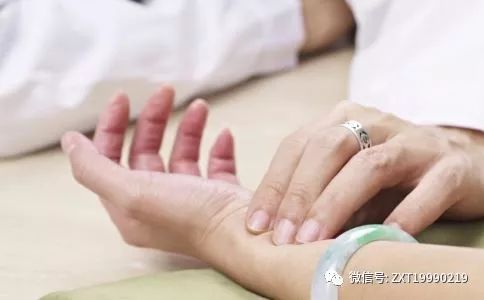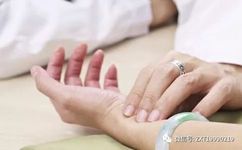A TCM platform with a serious attitude, aiming to share reliable TCM knowledge.
“Wang, Wen, Wen, Qie” (Observation, Listening, Inquiry, and Palpation) is a significant characteristic of TCM in diagnosing diseases, among which inquiry is a crucial part. In fact, TCM inquiry follows certain fixed patterns, and these questions can be asked by anyone to understand the patient’s condition. So, what exactly does TCM inquiry involve?

“Wang, Wen, Wen, Qie” is a major feature of TCM treatment of diseases, and inquiry is an important part of it. In fact, TCM inquiry has some fixed patterns that anyone can ask to understand the patient’s condition. So, what does TCM inquiry actually ask?
1. Inquiry about Urination and Defecation
Understanding the characteristics, color, odor, timing, volume, and frequency of urination and defecation, as well as the sensations during these processes.
Abnormal bowel movements: Difficulty in defecation or not having a bowel movement for several days is termed constipation. Heat excess injuring fluids leads to heat constipation, while cold accumulation leads to cold constipation, and qi stagnation results in qi constipation. Qi deficiency causing weakness results in deficiency constipation. Unformed or watery stools with increased frequency indicate diarrhea. Loose stools that are unformed are termed tang xie (watery diarrhea), often due to spleen dysfunction.
Abdominal pain with diarrhea occurring at dawn is termed wugeng xie (early morning diarrhea), often due to kidney yang deficiency. Abdominal pain with diarrhea, where pain decreases after defecation, is often due to food injury.
Abnormal stool quality: A burning sensation or feeling of heaviness in the anus during defecation indicates spleen qi sinking. Incomplete defecation suggests liver qi stagnation. Diarrhea with undigested food and relief of abdominal pain after defecation is often due to food injury. If the stool is yellow and sticky, it often indicates damp-heat accumulation in the large intestine. Frequent, urgent, painful defecation is often due to damp-heat obstruction, leading to dysentery symptoms. Incontinence of stool is often due to kidney yang deficiency.
Abnormal urine volume: Increased urine volume indicates deficiency-cold. Decreased urine volume may be due to heat excess, excessive sweating injuring fluids, or vomiting and diarrhea damaging fluids.
Abnormal urination frequency: Increased urination frequency with short, red, urgent urination is often due to damp-heat. Chronic illness with clear, frequent urination at night indicates kidney yang deficiency. Difficulty urinating, with dribbling, is generally due to damp-heat or blood stasis, while obstruction from stones indicates excess syndrome; if due to kidney yang deficiency, it indicates deficiency syndrome.
Abnormal sensations during urination: Painful urination, urgency, and burning sensations are often due to damp-heat descending to the bladder, commonly seen in gonorrhea. Incontinence during sleep indicates kidney qi instability. Confusion and incontinence indicate a critical condition.
2. Inquiry about Cold and Heat
The occurrence of cold and heat is primarily determined by the nature of the pathogenic factor and the balance of yin and yang in the body, reflecting the interaction between the body’s righteousness and pathogenic factors.
But cold without heat: The patient feels cold but does not have a fever, indicating a deficiency-cold syndrome due to insufficient yang qi.
But heat without cold: The patient has a fever but does not feel cold or even fears heat, indicating internal heat syndrome. If high fever is accompanied by thirst for cold drinks, sweating, and constipation, it indicates excess heat syndrome. If there is low-grade fever in the afternoon, with hot palms and soles, night sweats, and flushed cheeks, it indicates internal deficiency-heat syndrome.
Chills with fever: The patient feels cold while having a fever, indicating the initial stage of an external pathogen.
Alternating cold and heat: Cold and heat appear alternately. Regular alternating cold and heat indicates malaria. Irregular alternating cold and heat, accompanied by pain in the flanks and bitter mouth, indicates liver and gallbladder disease.
3. Inquiry about Sweating
Sweating is related to the balance of yang qi and the loss or gain of body fluids.
No sweating: In cases of external pathogens with cold evil, fever, chills, and headache without sweating indicate an excess syndrome.
Sweating: In cases of external wind evil, fever, and fear of wind with sweating indicate a deficiency syndrome.
Spontaneous sweating: Sweating with slight activity during the day, often accompanied by fatigue, shortness of breath, and fear of cold, indicates yang qi deficiency, often due to internal injury.
Night sweats: Sweating during sleep, accompanied by fever, flushed cheeks, irritability, insomnia, and vivid dreams, indicates internal heat due to yin deficiency, often due to internal injury.
4. Inquiry about Sleep
Insomnia: Difficulty falling asleep or waking easily during the night, difficulty returning to sleep, or sleeplessness throughout the night. This is often due to insufficient yin blood failing to nourish the heart. It is often accompanied by palpitations, vivid dreams, tinnitus, and tidal fever. If insomnia is due to phlegm-fire or food accumulation, it is often accompanied by facial redness, shortness of breath, thirst, and discomfort in the stomach.
Excessive sleepiness: Strong desire to sleep, often falling asleep involuntarily. In older individuals with physical weakness, this often indicates heart and kidney yang deficiency; in overweight individuals, it is often accompanied by abdominal distension and phlegm, indicating spleen deficiency with excessive dampness, preventing clear yang from rising.
5. Inquiry about Pain
Inquire about the location, nature, and intensity of pain to observe the condition.
Headache: Sudden headache, continuous pain, accompanied by chills and fever, often indicates an external excess syndrome. Intermittent headaches, with a feeling of pressure that worsens with fatigue or accompanied by dizziness, often indicate an internal injury deficiency syndrome.
Chest pain: Chest pain due to lung heat is often unilateral, accompanied by fever, cough, and yellow, thick phlegm; chest obstruction syndrome presents as a feeling of pressure or stabbing pain in the heart area, recurring with palpitations and shortness of breath;
Pain from liver and gallbladder disease presents as discomfort in the flanks;
Pain from stomach disease presents as distension and pain in the epigastric area, often accompanied by belching and sour regurgitation.
6. Inquiry about Diet and Taste
This includes understanding the amount of water intake, preference for cold or hot, appetite and food intake, and any abnormal taste sensations.
Thirst with excessive drinking: Thirst with excessive drinking often indicates fluid damage, commonly seen in heat or dryness syndromes, or excessive sweating, vomiting, or diarrhea. If thirst is accompanied by a preference for cold drinks, it indicates internal heat damaging fluids. Increased urination and weight loss may indicate diabetes.
No thirst or little drinking: No thirst and lack of desire to drink often indicate a cold syndrome. Thirst with a preference for drinking but vomiting after drinking often indicates water-dampness stagnation in the stomach. Thirst with little drinking and a preference for hot drinks often indicates damp syndrome or deficiency-cold syndrome, while a preference for cold drinks indicates damp-heat syndrome.
Lack of appetite and food aversion: Lack of desire to eat or food tasting bland indicates low appetite, often due to food injury or external heat. Prolonged lack of appetite indicates spleen and stomach weakness. If there is aversion to food, it is often due to food stagnation or liver-spleen damp-heat.
Excessive eating and picky eating: Excessive eating leading to hunger often indicates stomach fire; heat in the stomach leads to excessive consumption. If a long-term illness leads to an inability to eat, followed by sudden overeating, it often indicates a sign of impending failure of spleen and stomach qi. Picky eating of raw rice, dirt, or foreign objects indicates parasitic accumulation.
Taste: Bitter taste indicates liver and gallbladder heat, sour taste indicates food stagnation in the gastrointestinal tract, foul breath indicates stomach fire, bland taste indicates dampness in the stomach or deficiency syndrome, sweet taste indicates spleen damp-heat, and salty taste indicates kidney deficiency.
Through the above article, we understand the basic content of TCM inquiry. If you plan to see a TCM practitioner, consider these questions in advance so that you can respond quickly when asked.
Companionship is the longest confession of love
We provide you with the most practical health and wellness knowledge, along with TCM operational techniques.
Scan the QR code
Follow us

More technical details….

 Every like you give is taken seriously as a sign of affection.
Every like you give is taken seriously as a sign of affection.




